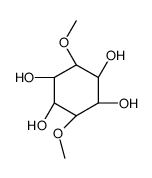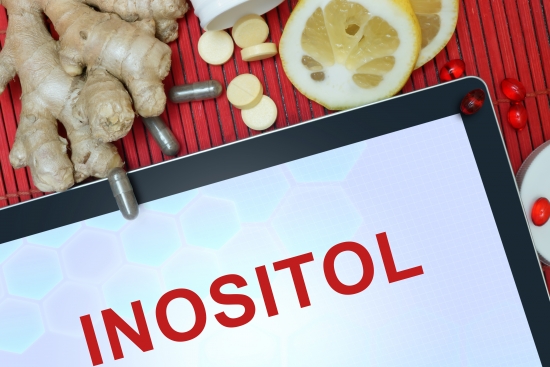Depression is a mental illness that affects millions of people all over the world. It can be caused by many different things, including genetics, trauma, and stress. There are many different treatments for depression, but one that is becoming increasingly popular is inositol. Inositol is a natural supplement that is effective in treating depression. In this blog post, we will discuss what inositol is, how it works, and the benefits of using it to treat depression.
Contents
What Is Inositol?

Inositol is a simple carbohydrate that is found in many foods, such as beans, grains, and fruits. It’s also available as a supplement. Inositol is sometimes called vitamin B-like because it was once thought to be part of the vitamin B complex. However, inositol isn’t a vitamin.
Inositol has several functions in your body. It’s important for cell signaling and plays a role in the metabolism of fats. Inositol is also involved in the action of serotonin, a neurotransmitter that’s associated with mood and happiness. That’s why inositol supplements are sometimes taken for depression.
Inositol doesn’t work for everyone with depression, but it may be worth trying if you haven’t had success with other treatments. Inositol is generally considered safe, but it can cause side effects like nausea, diarrhea, and fatigue. It’s also important to note that inositol may interact with some medications, so be sure to talk to your doctor before taking it.
If you’re considering trying inositol for depression, talk to your doctor about whether it’s right for you. Together, you can come up with a treatment plan that will help you manage your depression and improve your quality of life.
How Does Inositol Work For Depression?
The working of inositol for depression is not fully understood. It is thought to work by regulating neurotransmitters, such as serotonin and dopamine. These are the chemicals in the brain that are associated with mood and emotion. Inositol has been shown to increase the level of these neurotransmitters. These neurotransmitters are thought to be low in people who have depression.
There is some evidence that inositol may also help to improve sleep quality. This is thought to be because it can help to regulate the sleep-wake cycle. In addition, inositol may help to improve mood by reducing inflammation.
In a study of people with bipolar disorder, inositol was found to be as effective as lithium (a medication used to treat bipolar disorder) in treating symptoms of mania and depression. In another study, inositol was found to help treat panic attacks.
This way of action is different from that of common antidepressants, which mostly work by inhibiting the reuptake of serotonin. Therefore, inositol may be a helpful addition to antidepressant medication for people who do not respond well to traditional antidepressants.
Through the working of inositol, it is also thought to help regulate sleep and appetite. This can be helpful in people who are struggling with weight gain or loss as a result of their depression.
Also, inositol is thought to help protect the brain from damage. This is important as depression has been linked with an increased risk of developing dementia.
Inositol may also have other benefits for people with depression. For example, it has been shown to help improve quality of life.
Who Should Take Inositol for Depression?

Takings inositol for depression is most effective for people who have unipolar depression or bipolar disorder. If you have depression and anxiety, inositol may also be helpful. A 2006 study showed that people with panic disorders experienced a decrease in symptoms when taking inositol.
Inositol is as effective as some antidepressants but without negative side effects. In one study, 70% of people taking inositol reported improvements in their depression symptoms. And in another study, inositol was found to be more effective than a placebo at treating bipolar disorder.
Sometimes people with depression also have problems with anxiety, anger, or sleep. Inositol has also been shown to help improve these symptoms. In one study, people taking inositol reported a decrease in anxiety and an improvement in sleep quality. And in another study, people taking inositol had improvements in both depression and anxiety symptoms.
If you’re considering taking inositol for depression, it’s important to talk to your doctor first. While inositol is generally safe, there are some potential side effects. And it’s important to make sure that inositol won’t interact with any other medications you’re taking.
How To Take Inositol For Depression?

Taking inositol for depression is simple. The recommended dosage is 14-18 grams per day, taken in two to three divided doses. Inositol can be taken with or without food. If you experience any stomach upset, it is best to take inositol with food.
One can take it in powder form, or as capsules. The powder form is the most popular because it is more economical. If taking the powder form, it can be mixed with water or juice. Some people prefer to take inositol on an empty stomach, but there is no evidence that this increases absorption or effectiveness.
If you are pregnant, nursing, have a medical condition, or are taking any medication, please consult your doctor before taking inositol.
There are many tips to keep in mind while taking inositol for depression. Some of these are:
Be Consistent With the Dosage
One of the most important tips is to be consistent with dosage. Inositol should be taken every day, at the same time each day, to experience its full effects. Also, it can take up to four weeks for inositol to build up in the body and start working. So, it is important to be patient and consistent when taking inositol for depression.
Start With A Lower Dose
If you are new to taking inositol, it is best to start with a lower dose (around 12 grams per day) and gradually increase it as needed. This will help your body adjust to the supplement and decrease the chances of experiencing any side effects.
Monitor Your Depression Symptoms
When taking inositol for depression, it is important to monitor your symptoms closely. Keep track of how you are feeling mentally and emotionally daily. This will help you determine if inositol is effective for you and if the dosage needs to be adjusted.
Take It With Meals
If you experience any stomach upset, it is best to take inositol with food. This will help minimize any digestive discomfort. Also, be sure to drink plenty of water throughout the day to stay hydrated.
Keep Track of Your Moods
It can be helpful to keep track of your moods while taking inositol for depression. This will help you determine if inositol is effective for you and how long it takes to see results. You can do this by keeping a journal or using a tracking app on your phone.
These are just a few tips to keep in mind when taking inositol for depression. If you have any questions or concerns, be sure to speak with your doctor. Inositol is a safe and effective supplement that can help improve your mood and reduce symptoms of depression. So, if you are struggling with depression, give it a try.
What Are The Benefits of Taking Inositol For Depression?

Inositol has many potential benefits for those suffering from depression. Some of these are:
Inositol can help to improve mood and reduce anxiety.
One of the main benefits of inositol is that it can help to improve your mood and reduce anxiety. This is because inositol helps to regulate the levels of serotonin in your brain, which is one of the main chemicals responsible for mood and anxiety.
Inositol can help to improve sleep quality.
Depression can often cause problems with sleep, such as insomnia or waking up frequently during the night. Inositol can help to improve sleep quality by helping to regulate the levels of serotonin in your brain, which can help you to feel more relaxed and get a better night’s sleep.
Inositol can help to reduce stress and cortisol levels.
Cortisol is a hormone that is released when you are under stress, and high levels of cortisol can contribute to anxiety and depression. Inositol can help to reduce stress and cortisol levels by helping to regulate the levels of serotonin in your brain, which can help you to feel more relaxed and reduce stress hormones.
Inositol can help to improve cognitive function.
Depression can often cause problems with concentration and memory, but inositol can help to improve cognitive function by helping to regulate the levels of serotonin in your brain, which is important for learning and memory.
Inositol can help to reduce the side effects of SSRI antidepressants.
SSRI antidepressants are a common treatment for depression, but they can often cause side effects such as nausea, headache, and sexual dysfunction. Inositol can help to reduce these side effects by helping to regulate the levels of serotonin in your brain, which is important for reducing anxiety and improving mood.
Possible Side Effects of Inositol
While inositol is generally well tolerated, there are a few possible side effects to be aware of. These include:
Digestive upset
When taken in large doses, inositol can cause stomach upset, diarrhea or constipation. To avoid this, start with a lower dose and increase gradually as needed. Taking inositol with food can also help reduce digestive upset.
Dizziness
Inositol can cause dizziness in some people, so it’s best to avoid driving or operating heavy machinery until you know how it affects you.
Headache
Some people may experience headaches when they first start taking inositol, but this usually goes away with time. If you do experience a headache, try taking a lower dose and increasing gradually as needed. You can also take inositol with food to help reduce the risk of headaches.
Constant tiredness
If you find that inositol makes you feel tired all the time, it’s best to stop taking it and speak to your doctor. When you feel tired all the time, it’s difficult to function properly and can make your depression worse.
These are some of the side effects of inositol. If you experience any of these, it’s best to speak to your doctor.
Conclusion
Deplin and inositol are two different forms of the same nutrient. Deplin is a prescription form of inositol, while inositol is available over the counter. Inositol is effective in treating depression, anxiety, and OCD. If you are considering taking inositol for depression, speak with your doctor first to see if it is right for you.
While inositol is generally safe, there are some potential side effects to be aware of. These include upset stomach, diarrhea, headache, fatigue, and dizziness. If you experience any of these side effects, stop taking inositol and speak with your doctor.
Hope this article was of help to you! If you are suffering from mental health disorders, you may seek help from Therapy Mantra. We have a team of highly trained and experienced therapists who can provide you with the tools and skills necessary for overcoming mental health disorders. Contact us today to schedule an online therapy or download our free Android or iOS app for more information.


